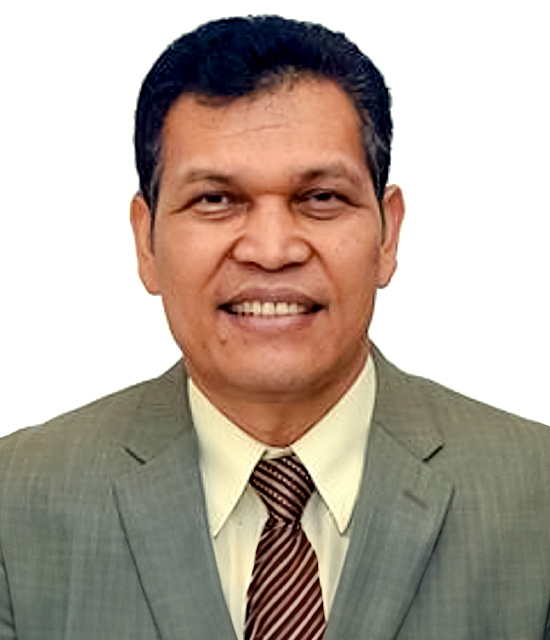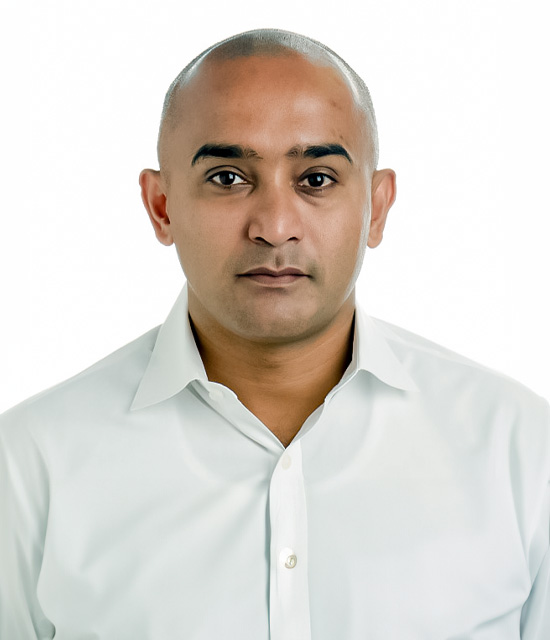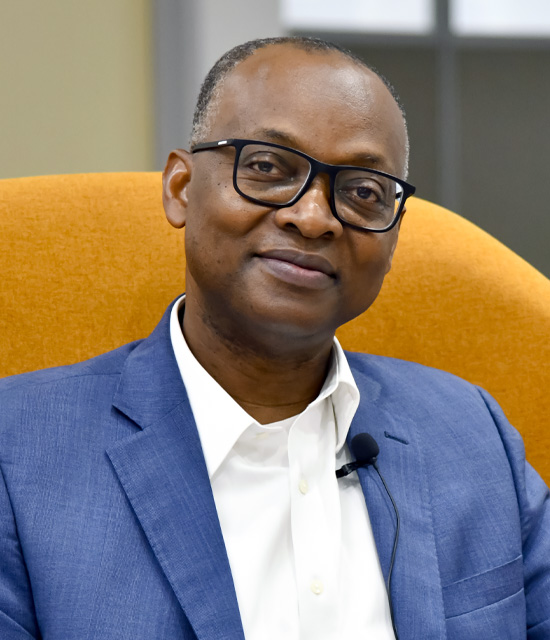International financial institutions advancing gender equality in Bangladesh
Date:
International Women's Day (IWD) 2024 represented a significant moment as the world united under the theme "Invest in Women: Accelerate Progress." In the spirit of this global call to action, three chiefs of missions from international finance institutions working in Bangladesh offered their perspectives on the significance of investing in women to accelerate sustainable development.
EDIMON GINTING
Asian Development Bank

How is the Asian Development Bank (ADB) advancing women’s empowerment and financing for gender equality in Bangladesh?
ADB is deeply committed to advancing women’s empowerment and financing for gender equality in Bangladesh through multifaceted strategies. We collaborate closely with the Government of Bangladesh to align our initiatives with national gender equality policies and priorities. Our efforts encompass various sectors, including education, healthcare, finance, and infrastructure development. We prioritize projects that promote women’s economic participation, ensure their inclusion in decision-making processes, and foster gender-responsive policies and practices.
Through targeted financial assistance and technical expertise, ADB supports gender mainstreaming across projects. This entails integrating gender equality considerations into project design, implementation, and monitoring, thereby ensuring impactful outcomes. Additionally, we work with civil society organizations and other stakeholders to enhance the effectiveness and sustainability of our gender-focused interventions. Our goal is to create lasting change by addressing the root causes of gender disparities and promoting inclusive development in Bangladesh.
This year’s IWD theme is ‘Invest in women: accelerate progress’. How is ADB promoting women’s leadership in climate action? What might be opportunities to strengthen gender-responsive climate financing in the current context?
ADB recognizes the pivotal role of women in climate action and is actively promoting their leadership in this crucial area. We support initiatives that empower women to participate in decision-making processes related to climate change adaptation and mitigation. Through capacity-building programs and targeted investments, we aim to enhance women’s skills and knowledge in climate-resilient practices.
ADB is also working towards becoming the regional climate bank, which further emphasizes our commitment to integrating gender considerations into climate finance mechanisms. Opportunities to strengthen gender-responsive climate financing include increasing investment in projects that directly benefit women, such as renewable energy and sustainable agriculture initiatives. ADB can also enhance access to climate finance for women-led businesses and organizations.
Additionally, collaboration with partners and stakeholders is key to developing innovative financing mechanisms that prioritize gender equality and empower women to actively participate in climate action efforts. By leveraging these opportunities, ADB seeks to accelerate progress towards gender-responsive climate financing and ensure a sustainable and inclusive future for all.
JAYENDU DE
International Monetary Fund

How is the International Monetary Fund (IMF) advancing women’s empowerment and financing for gender equality in Bangladesh?
On January 30, 2023, the IMF Executive Board approved a 42-month financial program with Bangladesh. The program includes reforms aimed at creating fiscal space to enable greater social and developmental spending, strengthening the financial sector, and building climate resilience. These are expected to benefit women’s empowerment by supporting increased investment in health, education and infrastructure, expansion of social safety nets, greater financial inclusion, and tackling climate change-related challenges, which often disproportionately affect women.
In its most recent Article IV consultation, the IMF highlighted the large economic losses to Bangladesh from remaining gender gaps in labor force participation and financial inclusion and called attention to the important synergies between policies to address climate change and women’s empowerment. Our analysis also called for a strengthening of Gender Responsive Budgeting practices in Bangladesh to channel public resources more effectively towards the achievement of the country’s gender equality goals.
Bangladesh graduates from a Least Developed Country (LDC) status in 2026, what macroeconomic measures might be required to accelerate progress on gender equality and women’s empowerment?
As Bangladesh graduates from LDC status and endeavors toward reaching upper-middle income status, broader economic inclusion for women becomes indispensable. Stepped up investments in health, education, and infrastructure (transportation, sanitation, childcare) are required to increase women's mobility and reduce domestic work and care burdens. To finance this, Bangladesh needs to expand its tax base, improve tax efficiency, and reduce insufficiently targeted subsidies. Additionally, reforms in the financial sector are needed to ensure an inclusive financial system that attracts private investment and supports both female and male entrepreneurs. Finally, mainstreaming climate mitigation and adaptation policies is vital to ensure development gains, especially for women.
ABDOULAYE SECK
World Bank

How is the World Bank advancing women’s empowerment and financing for gender equality in Bangladesh?
Bangladesh has realized early on that investing women is a critical economic driver. Women’s empowerment remained central to the country’s development strategy. We collaborate with the government to amplify women's voices, agency, and participation in social and economic activities through our investments and analytical works. This aligns with the World Bank's Gender Strategy and the Country Partnership Framework, addressing diverse challenges that hinder women's empowerment.
In Bangladesh, we have a dedicated Gender and Social Inclusion Platform that ensures each project identify priority gender gaps and integrate specific actions to bridge those. We have implemented Gender sensitized Grievance Mechanisms, mandatory signing of code of conducts, and regular consultation with all project beneficiaries and project staff, leading to positive outcomes in report and managing sexual harassment and gender-based violence. Several of the ongoing projects focus on improving female labor force participation through skilling NEET Youth, women in remote areas and belonging to marginalized groups, utilizing toolkits designed to ensure inclusion of such groups, for example women and girls with disabilities. Our studies explore and pilot innovative solutions to make public spaces safer, including public transport and workplaces. Studies are exploring and piloting ways to make public transport, workplaces, and public spaces safer for women, provisioning for childcare, GBV prevention and response mechanisms, and utilizing technology to bring more women into the formal employment and entrepreneurship.
Close to half a million Rohingya women and girls currently live in the refugee camps in Cox’s Bazar. Gender equality remains an unfinished agenda. In your opinion, what additional measures are needed to advance women’s leadership and address violence and discriminatory norms?
Gender equality efforts face many complexities, especially in situations with strong social norms. This was evident with displaced Rohingya women, many of have faced gender-based violence (GBV) and trauma even before arriving in Bangladesh. Their conservative background made it difficult for them to access support services.
But we are encouraged to see that change is possible within a short period of time with the right set of interventions. The World Bank supported the Health and Gender Support Project (HGSP) to help women and girls in the Rohingya camps and in the host community access to health, nutrition and family planning services as well as address GBV through preventive and response services. This support helped displaced Rohingya women participate in camp activities, study, volunteer work, or benefit from counseling, midwifery, family planning and GBV response services. Prevention efforts and community outreach were used to increase confidence and empower Rohingya women. These initiatives enabled them to see themselves as agents of change within their families and communities, making decisions. This shift in perspective is a stark contrast to their lives in Rakhine. The World Bank and the government are now in discussion about follow up projects, built upon the successful interventions used by HGSP to address widespread GBV, especially intimate partner violence and child marriage in the camps and surrounding host communities.